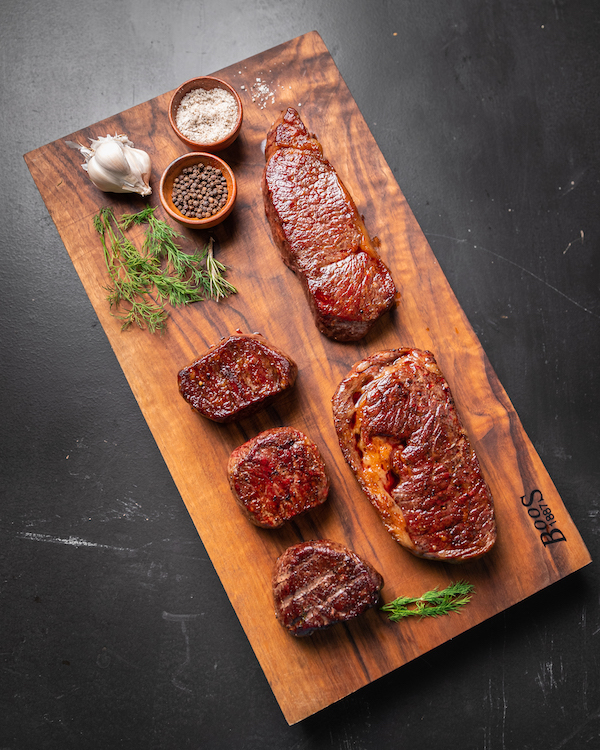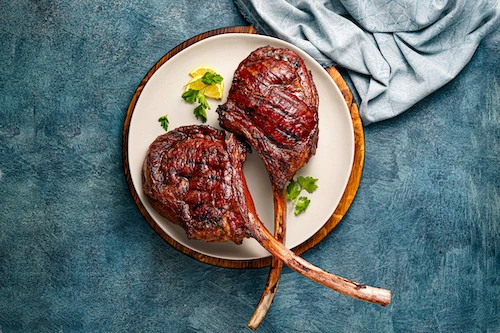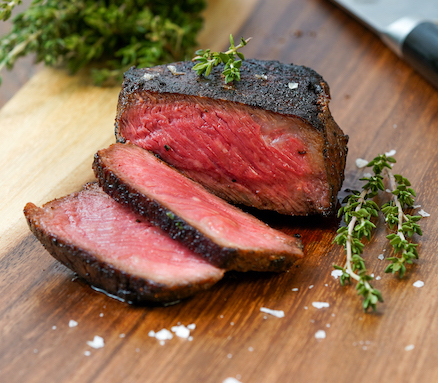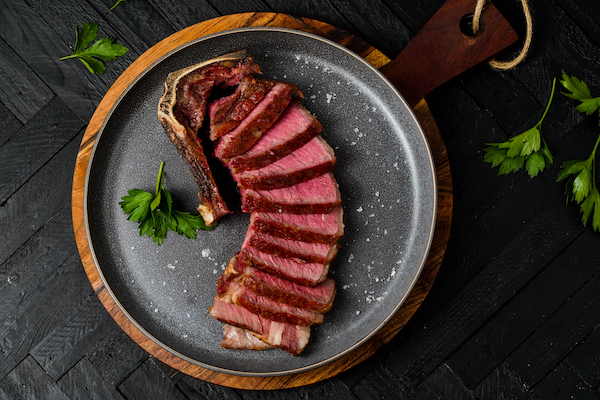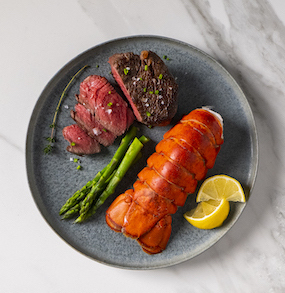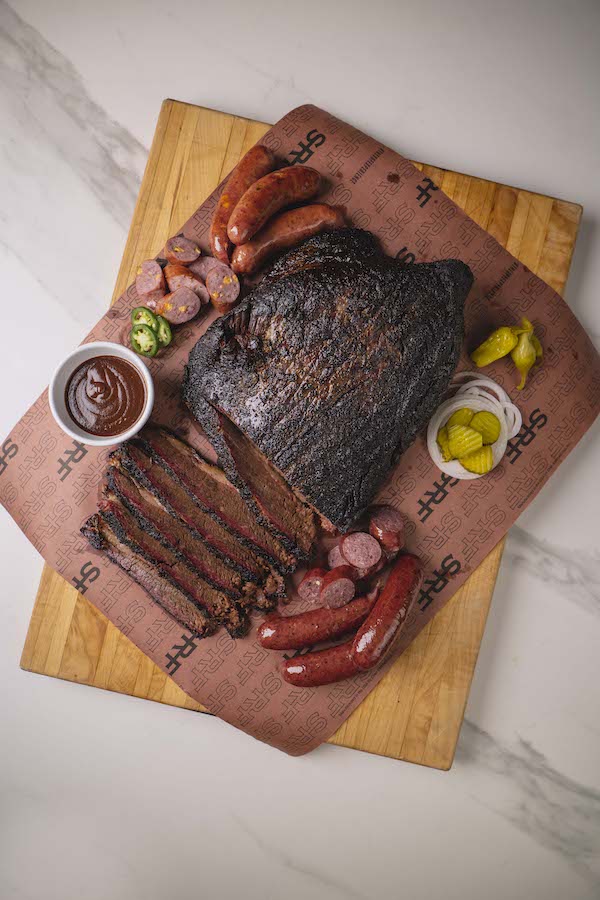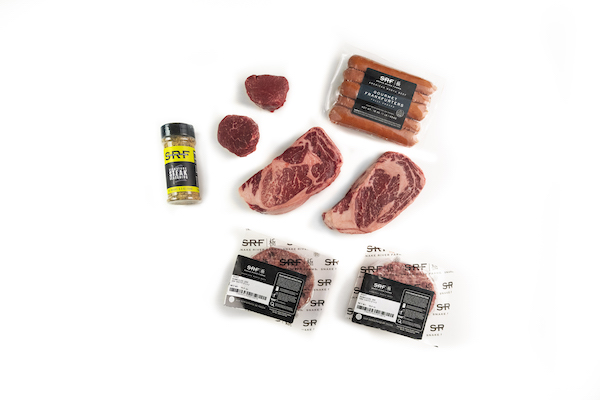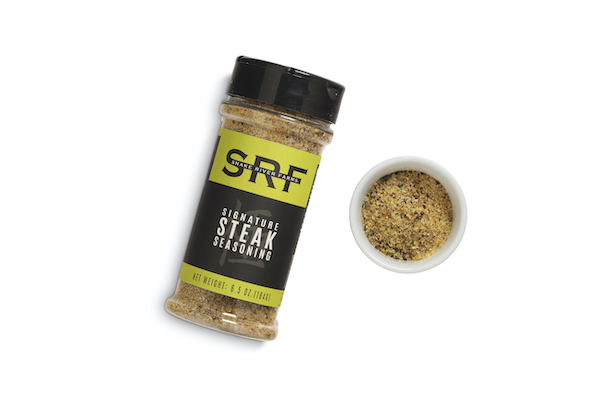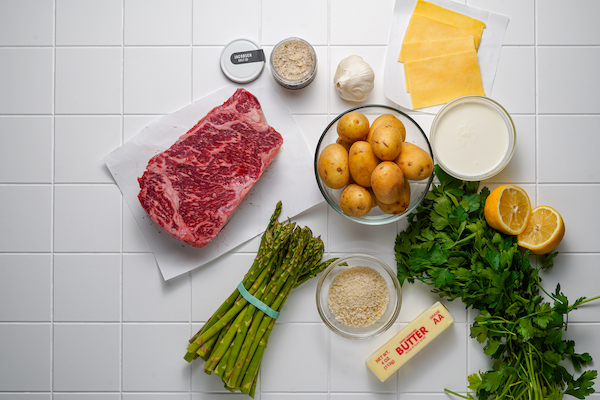Stewardship
The world has changed a lot since Robert Rebholtz Sr. founded Agri Beef back in 1968. New conversations around sustainability, conservation, and the humane treatment of the cattle, have pushed us to become peerless stewards of the land and the herd. Many companies will tell you who they are, then separately tell you what they do. At Snake River Farms, we are what we do.
“Transparency is education, and education is trust,” Robert Rebholtz Jr. says about his desire for Snake River Farms to be known as a company of integrity when it comes to issues of stewardship. He wants others within this industry and consumers alike to understand the lengths we go to combat real problems with innovative solutions.
Sustainability

At Snake River Farms, we’ve embraced constantly investigating new ways to minimize our carbon footprint and keep our cattle healthy. One change sends a ripple down the line. When we decided to procure crops as much as possible from farmers within 150 miles of our feedlot, we knew we’d be getting fresher and more nutritious ingredients for our feed. We saw the immediate benefit to our cattle, but also knew we could cut down on emissions from transportation, too. With the farmers local, we recognized the opportunity to use animal waste in a composting program, selling nutrient-rich fertilizer back to the same farmers who provided us their crops.
When we decided to graze our cows in the foothills of the Cascades, we thought the location would be an optimal high-altitude environment, in an ideal climate, for the well-being of the herd. But we also recognized we had to take care of those precious mountain meadows and instituted a grazing rotation to keep the rangeland healthy.
Cattle Welfare
For the welfare of our cattle, we see great benefit in keeping our feeding facilities as calm and quiet as possible. All our handlers are specially trained in calming methods, with the simple idea that calm cattle are healthier, and healthy cattle make for better beef.
SRF Program Manager, Jordan Sparrowk, says, “We don’t treat them as a mass. Each cattle is tagged and treated as an individual, care taken to their specified needs in health, feeding, and comfort.”
As proud as he is of the Gold-grade ribeyes the floor-workers produce, VAP Superintendent, Nate Dyun is equally as proud we’ve been able to reduce Washington Beef Processing Plant’s water use by 40% per pound of beef and use a bio-dome to capture methane to be recycled for 20% of our natural gas needs.
“We’ve designed our stockyard at the specifications of Dr. Temple Grandin,” Dyun says of the yard that’s sun-shaded, with water always available to the stock, curved fences to avoid sharp angles that might injure the cattle, and cobble-stone floors especially suited for hooves to grip. “It’s top priority to keep the cattle calm and watered and safe.”
Healthy lands and humanely treated cattle makes for a better environment and sustainable practices. Some might suggest there’s no bottom line benefit to being overtly concerned about conservation and animal welfare. But the synergy of where healthy land and animals not only meets the important concerns of the day but also adds quality to our product drives us willingly and urgently into innovation and transparency. At Snake River Farms, we’re proud of what we’ve done. We’re dedicated to do more, and are constantly searching out emerging technologies to move the industry toward the best environmental and animal welfare practices. When your business model is care and quality, what’s best for the environment, the cattle, and business, are one and the same.


